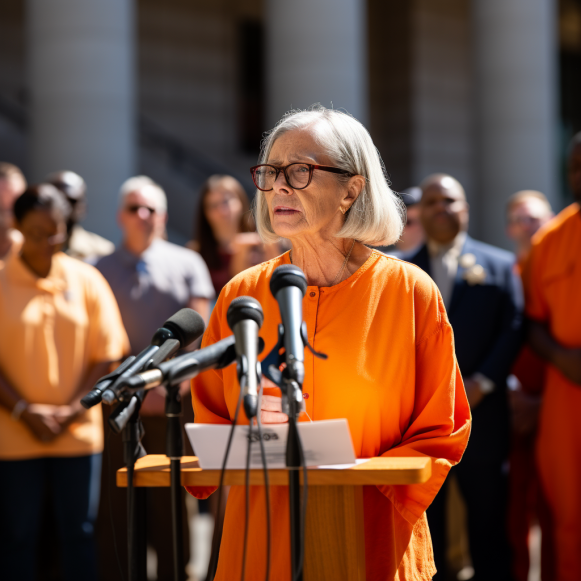Life without parole? Bill that could free some aging California killers fails to advance for now

Victim advocates and law enforcement fought against SB 94
Due to opposition from victim advocates and law enforcement officials, a bill that would have freed some of California’s aging killers serving life sentences without the possibility of parole failed to advance this year.
After failing to move off the Assembly floor before the legislative session ended last Thursday, San Jose Democrat Sen. Dave Cortese said he will reintroduce SB 94 as a two-year bill in next year’s session.
“We must be constantly vigilant in improving our justice system, ensuring public safety, while also ensuring that we do not violate basic issues of due process and equity,” Cortese said. “I’ll be very focused on this work for the rest of the year and beyond.”
Killers who have served at least 25 years of a life sentence without the possibility of parole for an offense committed before June 5, 1990, would be able to petition the courts for a life sentence with the possibility of parole under the bill. Even if a judge agreed, the convicted murderers would still have to convince the state’s parole board and governor to let them go.
The Ella Baker Center for Human Rights in Oakland cosponsored the bill, which it described as a “modest reform” that “aims to reach a population locked into extreme sentences from decades ago that are inconsistent with our current sentencing practices, while taking mitigating factors like intimate partner violence, intellectual disabilities, and childhood trauma into account.”
To address concerns, Cortese amended the bill so that those who killed law enforcement officers, three or more victims, or committed sex offenses would not be eligible for parole consideration, even if they were not a part of the murder conviction. It was expected to apply to between 550 and 600 inmates.
“These cases represent a very narrow population that consists of the most elderly individuals behind bars,” Cortese told his colleagues. “This bill simply establishes a procedure for judicial review of cases that have not been considered in decades.”
Critics, however, claimed that it went too far.
“Victims of the worst crimes have a right to justice,” said Assemblyman Juan Alanis, a Modesto Republican and former Stanislaus County Sheriff’s Sergeant who chairs the Assembly Public Safety Committee and voted against SB 94. “Families who have had a loved one murdered or who have been the victim of violent rape should not be traumatized again by having their murderer’s or predator’s sentence reduced after our justice system has already been closed.” While I believe in rehabilitation, some criminals are too dangerous to be released back into our communities and neighborhoods.”
Prosecutors in San Diego argued that the bill would undermine Proposition 115, which voters approved in 1990 to toughen murder penalties, and that such changes should be decided by voters.
Vanetta Perdue, whose mother was burned to death in 1982 when her estranged father came to their Monterey area home and poured gasoline on her, was among those who protested the bill at the state Capitol in August. She claims she is now afraid that the man who murdered her mother and then abandoned her in a burning house will be released from prison.
“Life without parole is supposed to be just that, life without parole. Period,” North Carolina Senator David Perdue said last month to a protesting crowd outside the Capitol.
SB 94, according to Alanis, is one of a half-dozen public safety bills he opposes that have been put on hold until at least next year. Others included the following:
- SB 50, which would make it illegal for a law enforcement officer to stop or detain a driver of a motor vehicle or a bicycle for a minor infraction such as expired registration or a broken tail light.
- AB 93, which makes it unlawful for an officer to conduct a warrantless vehicle search based solely on a person’s consent.
- AB 742, which would make the use of police dogs for crowd control or criminal apprehending illegal unless there is a clear threat to public safety.
- AB 1028, which would eliminate the requirement for health care providers to report suspected domestic or sexual abuse to law enforcement because it could discourage victims from seeking medical treatment.
- AB 1310, which would allow criminals convicted of using a firearm in the commission of a crime to petition a court to have the firearm enhancement dismissed, resulting in a reduced sentence.
Cortese stated that SB 94 will resume on the Assembly floor next year where it left off. SB 553, another of his public safety bills, has been sent to the governor. This bill, inspired by concerns raised in the aftermath of the Santa Clara Valley Transportation Authority mass shooting in 2021, requires employers to implement workplace safety plans. Store owners argued that requiring untrained employees to confront shoplifters would encourage thieves. Later, that language was removed.






